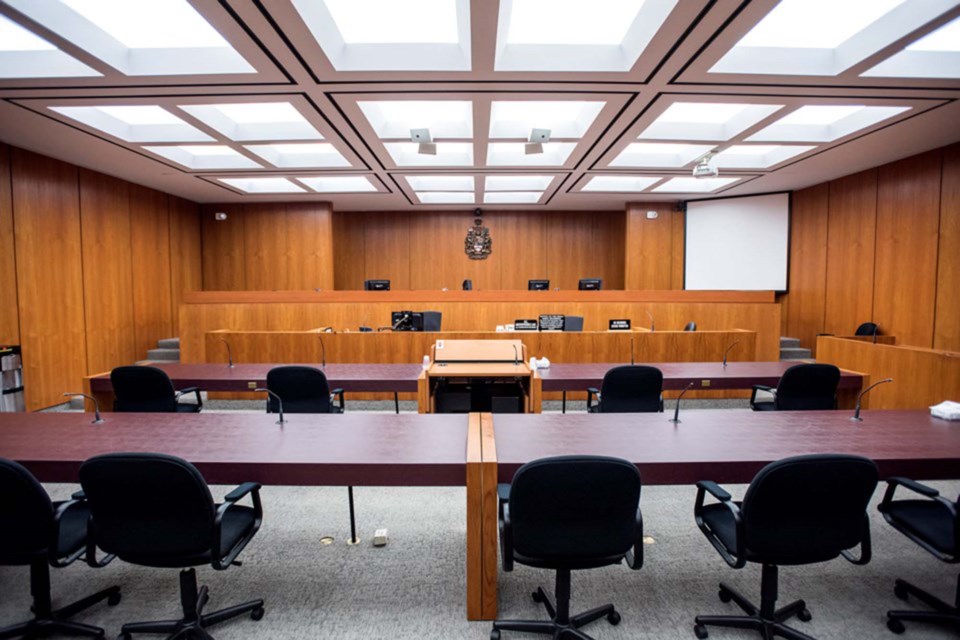Great West Media has received federal government funding through the Local Journalism Initiative to support a reporter to cover climate in Alberta.
Jen Henderson will feature in-depth reporting on where Alberta is at with actions to reduce carbon emissions and generation of less carbon-intensive energy, along with climate issues across the province as they intersect with industry, business, the environment, the economy, communities, and lifestyles.
Please email [email protected] with story ideas.
The Supreme Court of Canada is unlikely to agree with Alberta's top court when it comes to the Federal Impact Assessment Act, labelled by critics as the "no more pipelines" act, says one expert.
Last week, the Alberta Court of Appeal found that the federal environmental impact law, which allows the federal government to consider the impacts of new infrastructure or resource projects on issues such as climate change, to be unconstitutional.
A majority of Alberta’s top court found the decision to be constitutionally invalid, with only one dissenting opinion out of the five justices.
David Wright, a law professor at the University of Calgary who specializes in natural resource and environmental law, said that while Alberta’s top court may believe it is unconstitutional, he is confident the Supreme Court is likely to uphold the law — which critics of the law say makes it much more difficult to get pipeline projects approved in Canada.
“Legally, it's likely that this will be upheld by the Supreme Court of Canada. Politically, a federal election could change the sequence of events,” Wright said.
The legal expert pointed out that the decision made on the federal carbon tax saw the court of appeal rule the tax unconstitutional, however when brought up to the Supreme Court of Canada, it would be found to be legally sound.
“At the Supreme Court, it was indeed found to be constitutional by a majority of the court, and so just at a general level, this is, I think, likely to fall along a similar track,” Wright said.
The law, previously known as Bill C-69, was given royal assent in 2019, and was known at the time from the conservative opposition as the “no more pipelines” law.
Alberta argued the law could expand the range of federal oversight on infrastructure issues, encroaching on areas of provincial jurisdiction.
The court of appeal sided with the provincial government and argued that while climate change must be addressed, the environment doesn’t only fall under federal powers, and therefore they don’t have the jurisdiction to regulate it.
Wright said the provincial court is “very pre-occupied” with the notion of exclusive provincial jurisdiction, and then takes a narrow reading of the federal jurisdiction.
“The statute bends over backwards to respect provincial jurisdiction and minimize intrusion on provincial jurisdiction,” Wright said.
The law was carefully crafted to include checkpoints to safeguard against creeping federal jurisdiction, Wright said, and the federal agency overseeing the process can decide that no assessment is required on projects that have seemingly insignificant adverse effects on areas of federal jurisdiction.
In the decision released by the court of appeal, the majority justices described the law as an “existential threat” to the division of powers between the province and federal government, and said the law puts provincial government in an “economic chokehold” controlled by Ottawa.
Legitimate concerns about the environment and climate change should not override the provincial and federal divisions of power, the more than 400-page decision read.
“If the federal government believes otherwise, it should make the case for an increase in its jurisdiction to the Canadian public.”
The dissenting opinion, written by Justice Sheila Greckol, said the law is a valid use of constitutional authority.
“The complexities and the urgency of the climate crisis call for co-operative interlocking [of] environmental protection regimes among multiple jurisdictions.”
Greckol said it is important to not “give credence to any kind of 'Trojan Horse' metaphor advanced by Alberta and Saskatchewan.”
“Likening Canada to a foreign invading army deceptively breaching our protective walls only fuels suspicion and pits one level of government against each other,” Greckol wrote.
The ruling, which is non-binding, will be appealed to the Supreme Court of Canada, Prime Minister Justin Trudeau said in the House of Commons.
Once the Supreme Court rules on the decision, it will still be non-binding, Wright said, however if the court does find the law unconstitutional, the government will be strongly compelled to amend the law.
“That would almost certainly trigger or spark a round of amendments by the federal government to the act to bring it in line with whatever constitutional parameters the Supreme Court lays out,” Wright said.
The law impacts a range of infrastructure projects that will require federal impact assessments, including oil and gas facilities and fisheries.
The appeal process to the Supreme Court of Canada will likely be an 18- to 24-month process, Wright said, with a hearing in one year and a decision to follow a year after that.
“It could be slightly longer, but it’s unlikely to be much faster,” Wright said.
The decision from the court will be especially useful for all Canadians and potential project developers and foreign investors, Wright said.
“These cases don't come along very often. The Supreme Court of Canada opinion or decision on the constitutionality of federal Impact Assessment [come around] kind of once or twice a decade,” Wright said.
“Even though this is kind of painful and may create some uncertainty and political friction in the short term, once we do get an opinion from the Supreme Court of Canada, it's going to be extremely helpful for all Canadians and certainly for potential project developers and foreign investors when that gets released.”



